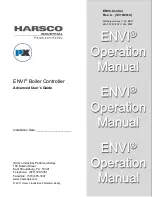
23 BASIC EXTERNAL CONNECTION DIAGRAM
23-2
Seiko Epson Corporation
S1C31D50/D51 TECHNICAL MANUAL
(Rev. 2.00)
Pxy
SDIn
SDOn
SPICLKn
#SPISSn
QSDIO00
QSDIO01
QSDIO02
QSDIO03
QSPICLK0
#QSPISS0
SCLn
SDAn
USINn
USOUTn
TOUTn0/CAPn0
:
TOUTn3/CAPn3
ADIN00–07
#ADTRG0
VREFA0
SWCLK
SWD
V
PP
R
DBG1
Debugging
tool
I/O
SPI
I
2
C
UART
PWM/Capture
C
PW1
C
PW2
+
S1C31D51
C
D1
C
G1
(
)
( )
X'tal1
C
D3
C
G3
( )
( )
X'tal3/
Ceramic
C
VPP
1.8–5.5 V,
2.4–5.5 V
∗
1
,
or 2.7–5.5 V
∗
2
3.0–3.6 V
(
R
DBG2
V
DD
)
QSPI
REMO
V
DD
IR transmitter module
Speaker
OR
EXSVDn
SDACOUT_P
SDACOUT_N
TOUT01
TOUT00
External voltage
External
circuit
A/D conversion inputs
( )
C
VREFA
∗
3
∗
5
∗
6
∗
4
SENB0
SENA0
REF0
RFIN0
R
TMP2
R
TMP1
R
REF
C
REF
Buzzer
External
circuit
V
DD
V
D1
V
DDQSPI
OSC1
OSC2
OSC3
OSC4
#RESET
TEST
V
SS
C
VDDQSPI
+
[The potential of the substrate
(back of the chip) is V
SS
.]
*
1: For Flash programming (when V
PP
is supplied externally)
*
2: For Flash programming (when V
PP
is generated internally)
*
3: When OSC1 crystal oscillator is selected
*
4: When OSC3 crystal/ceramic oscillator is selected
*
5: When SDAC is used for sound output
*
6: When T16B Ch.0 is used for sound output
( ): Do not mount components if unnecessary.
















































